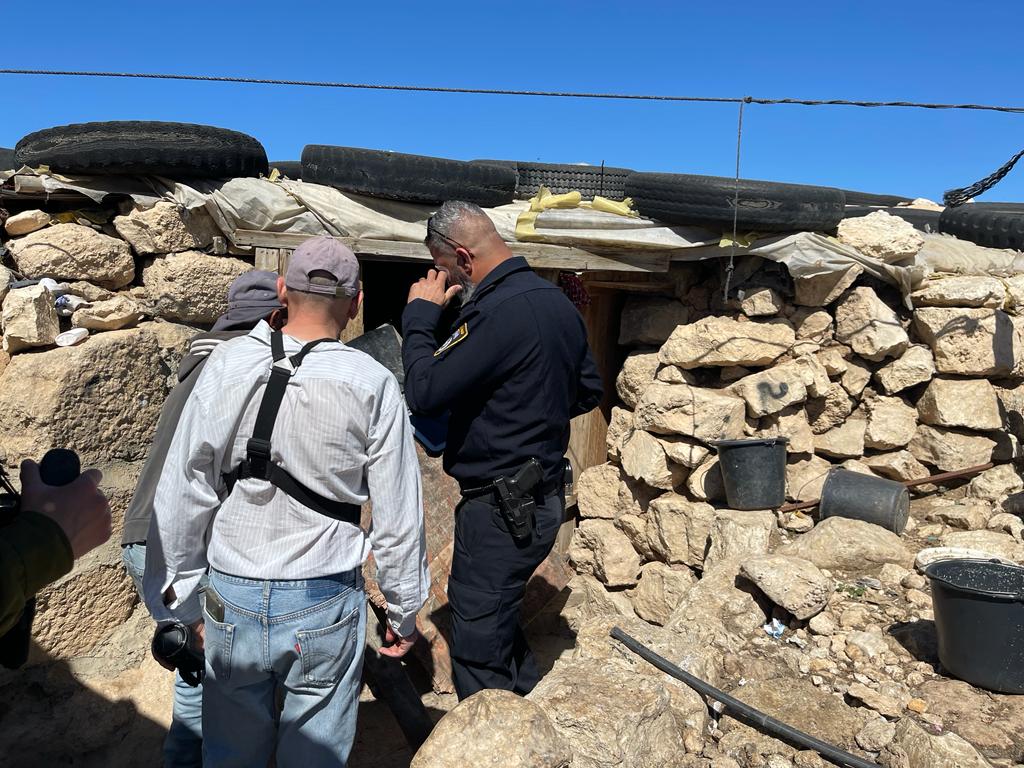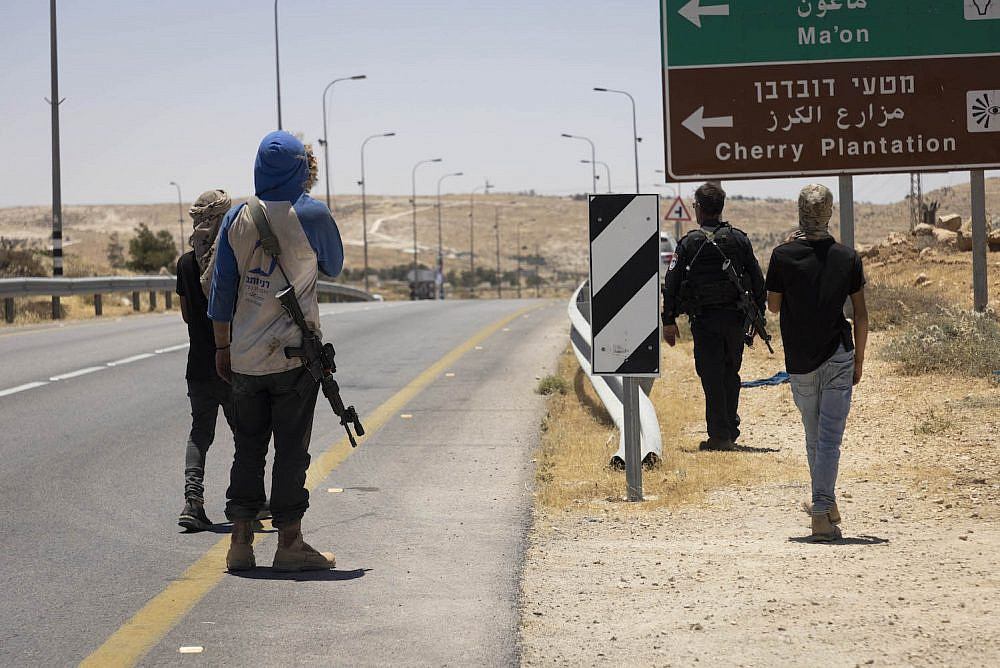Under the cover of night, two settlers invaded the home of a Palestinian family in the small agricultural village of Widada in the occupied South Hebron Hills earlier this month. The intruders, who likely came from the nearby outpost, reportedly broke into the home brandishing a gun and demanded the family “stop bringing leftists [to the area].”
The attack took place on the night of March 11, after settlers arrived at the home earlier that morning and broke its door during a solidarity visit by left-wing Israeli activists, who were accompanying the father of the family to his land. The police arrived on the scene during the first attack, but did not make any arrests.
The father, who asked to remain anonymous due to safety concerns, said that the second attack began at around 1:30 a.m., when two settlers broke into the room where his three young children sleep, while another Israeli dressed in IDF uniform guarded the entrance to the house and prevented the father from leaving. The father recognized one of the settlers, who was armed with a large gun, as one of the settlers living in the area.
“I told them to be quiet, that the children are sleeping,” the father said. “[The settler] took our phones so we could not take pictures. He said, ‘If you say anything, I’ll shoot you,’ and I felt the iron of the gun as he pressed it against my head. He said not to bring more leftists and then asked where I keep money. They overturned the whole house. The children were terrified and cried. I saw the soldier keeping guard outside our home, and below, in the valley, was another soldier who had accompanied them. “As soon as the dogs outside began to bark, I could feel that someone was out there, and they entered the house before I could get outside they went through our clothes, spilled a bowl of milk on the ground, threw objects in the house, and then left.”

The father told +972 that they drove to a nearby police station that night, where they asked a police vehicle to accompany them home. An officer agreed and tailed them as they drove back, but turned around in the middle of the journey, saying the unpaved road was too difficult to drive on. The father said that ever since the incident, his wife and three children — Nimer, 5 years old; Amir, 4 years old; and Rian, one year old — have had trouble falling asleep. He stays awake all night to keep watch over the house.
In a comment to +972, an Israeli police spokesperson said that officers arrived at the scene “as soon we learned of the [first] event,” and that “the complainant was asked to file a complaint at the station. A complaint has not yet been received by the police, and as soon as it is received, we will act accordingly.” While an officer did indeed arrive at the scene, he arrived the morning of the first attack, but not after the settlers broke into the home.
The assailants reportedly arrived from what is considered a “grazing outpost” that was built near the Shim’a settlement two years ago. Settlers from the outpost have, on multiple occasions, been documented kicking Palestinians off of their grazing land in the surrounding villages using ATVs, drones, and physical violence. The Palestinian family’s home, which, according to satellite images, has stood since at least 1981, is located near the outpost.
Most read on +972
Over 60 similar grazing outposts have been built in occupied West Bank between 2012-2022, according to research from Kerem Navot, an organization that monitors and researches Israeli land policy in the West Bank. According to Kerem Navot, settlers have used grazing to take control of around 60,000 acres of Palestinian land in the West Bank. Grazing outposts are typically home to small groups of young people who spend much of their days grazing sheep in order to prevent Palestinian residents of the area from reaching their land.
These outposts are part of the accelerating process of displacing Palestinians from agricultural land in order to concentrate them in Area A and B of the occupied West Bank (Area A is under full Palestinian Authority control, while in Area B Israel is charged with maintaining security). These outposts are established through an obscure legal process with the help of the Settlement Division — a branch of the World Zionist Organization devoted to Jewish settlement in the West Bank and other areas inhabited by Palestinians — and which is exempted from freedom of information legislation. As a result, very little information on the topic is accessible to the public.
This article was also published in Hebrew on Local Call. Read it here.






